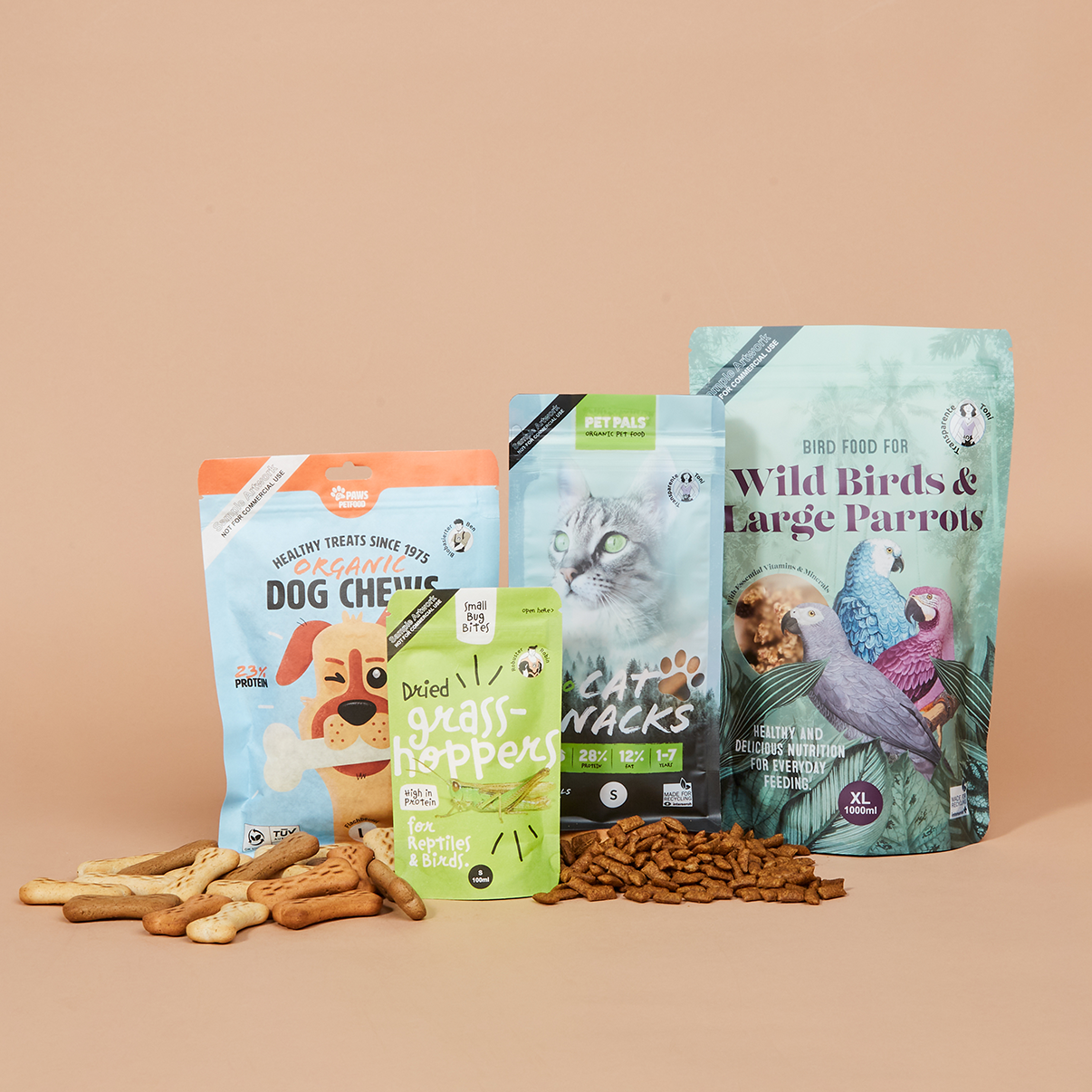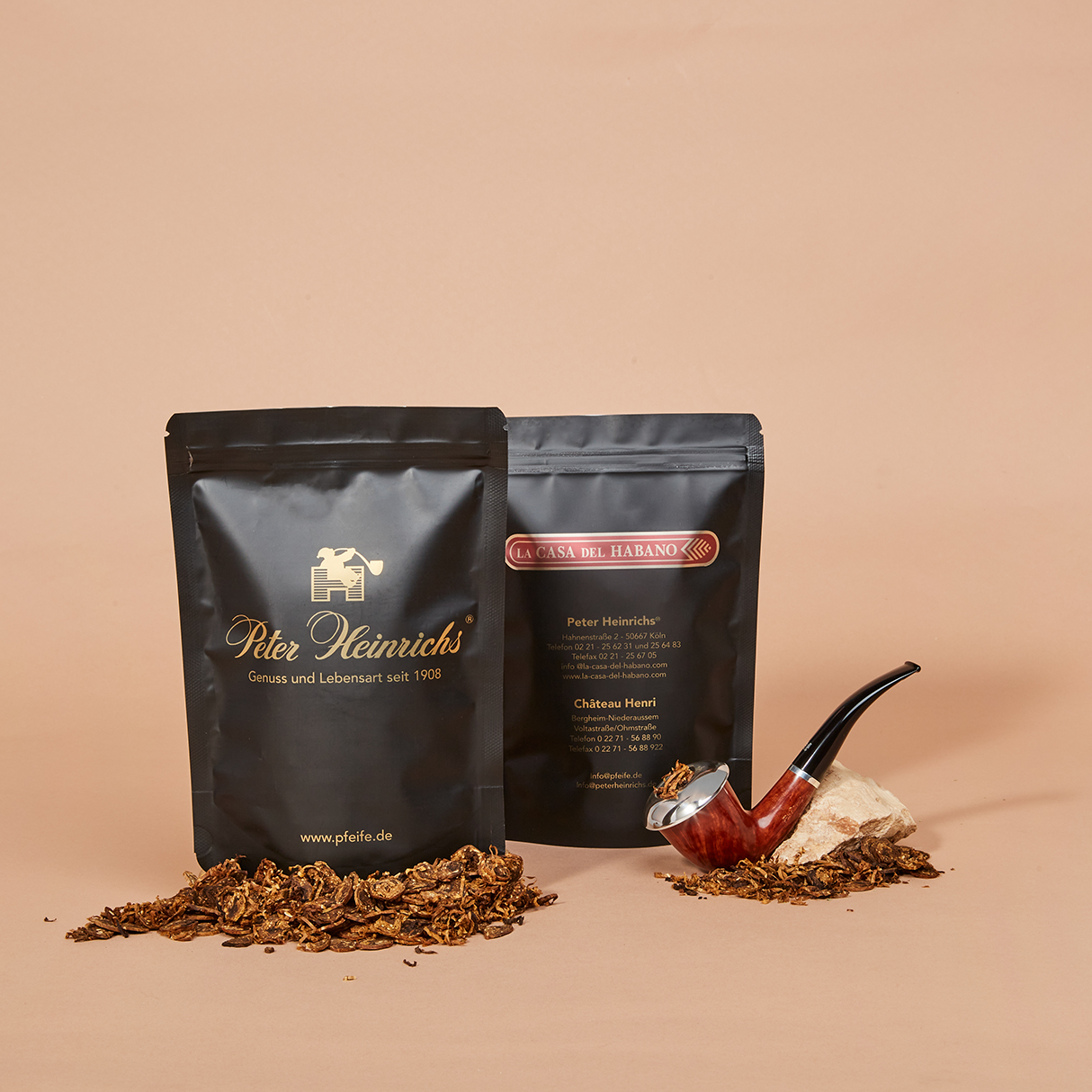
Eco-friendly packaging
Uncompromising product and environmental protection
Traditional packaging made from various layers of materials (known as "multimaterials") is not recyclable, leading to wasted resources and significantly increased CO2 emissions. That's why we opt for recyclable packaging made from monoplastics.
For our paper solutions, we use sustainable paper sourced from FSC®-certified forestry. All production steps take place exclusively within the EU, with quality, transparency, and the establishment of genuinely eco-friendly packaging being our top priorities. Together with you, we protect the environment and promote the circular economy.
The best thing: all our packaging materials are demonstrably suitable for food packaging!
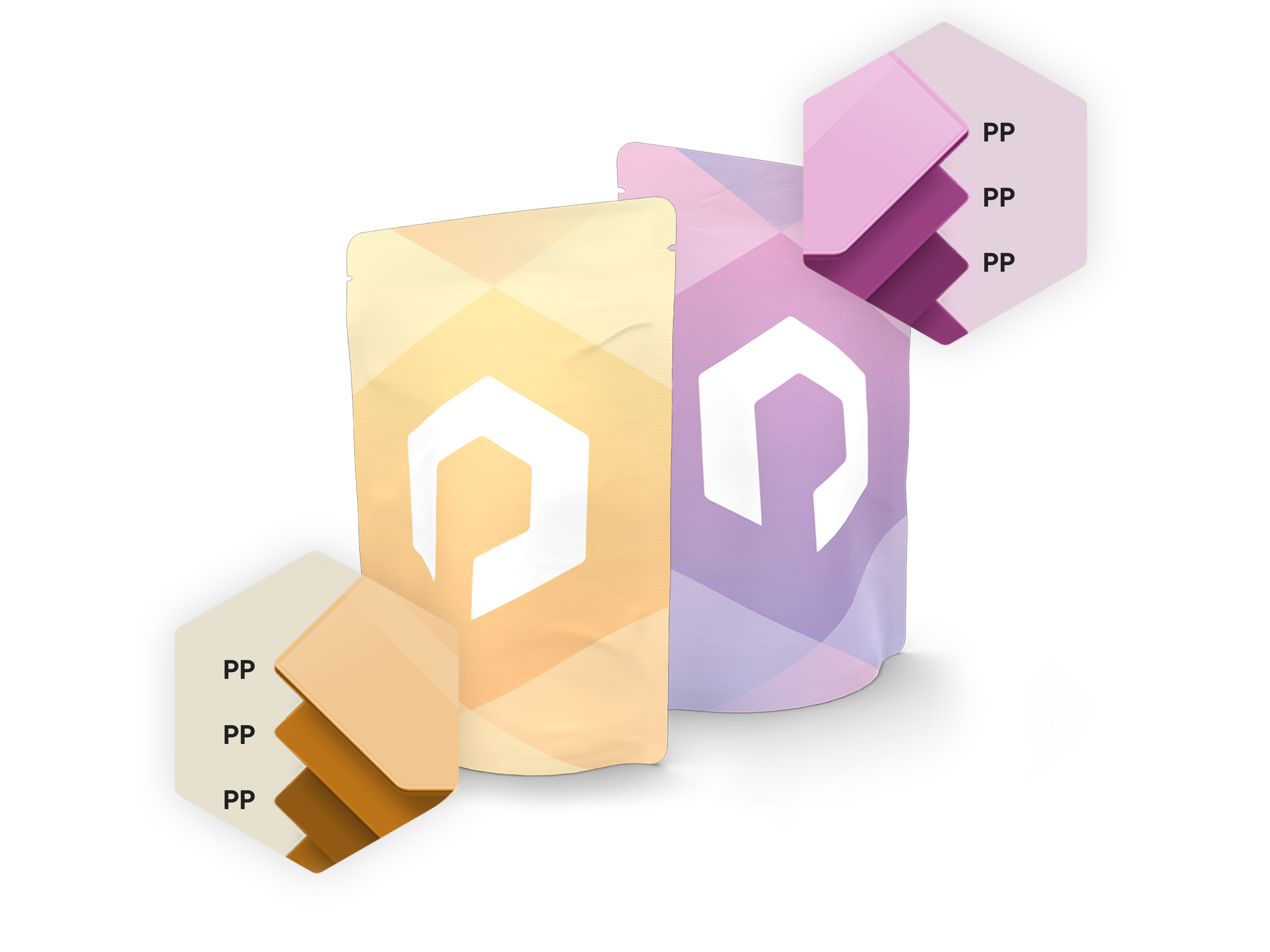
Certified recyclable plastic packaging
Fully Recyclable: Confirmed by the 'Made for Recycling' Seal from Interzero
With metallic effects or transparent viewing windows for special effects
per order we donate to the environmental organisation K.R.A.K.E.

Paper-based packaging made from sustainable forestry
Outer layer made from FSC®-certified paper
Creatively designed with a kraft paper appearance
For every 1k paper packages ordered, we plant one tree with Eden Reforestation.
Discover our unique materials. The perfect superpowers for your product!
 Recyclable mono-plastic with transparent surfaces |  Recyclable mono plastic with metallic effect |  FSC®-certified paper with bio-based plastic layer |  FSC®-certified paper with plastic film | |
|---|---|---|---|---|
Oxygen protection | Oxygen protection | Oxygen protection | Oxygen protection | Oxygen protection |
UV protection | UV protection | UV protection | UV protection | UV protection |
Moisture protection | Moisture protection | Moisture protection | Moisture protection | Moisture protection |
Sustainability | Sustainability Completely recyclable | Sustainability Completely recyclable | Sustainability Renewable raw materials | Sustainability Sustainable paper |
Add-Ons | Add-Ons
| Add-Ons
| Add-Ons
| Add-Ons
|
Sustainability takes many shapes
Due to the low weight and the reduced use of resources during production, pouches consume up to 60% less CO2 in its life cycle (compared to jars and cans).

Stand-up pouch
For 60 ml to 3.000 ml capacity
Optionally with Zipper
Functional all-rounder

Flat bottom pouch
For 500 g to 1.500 g capacity
Optionally with aroma protection valve
Extra stable & perfect for large volumes

Flat pouch
For 15 ml to 3.500 ml capacity
Optionally with Euro hole
Ideal for small quantities & for hanging
Sustainability perfectly tailored to your product
Every product has different requirements for packaging. Whether high protection against moisture, UV, oxygen or high stability for heavy products. In our range we have a suitable & sustainable packaging solution for you!
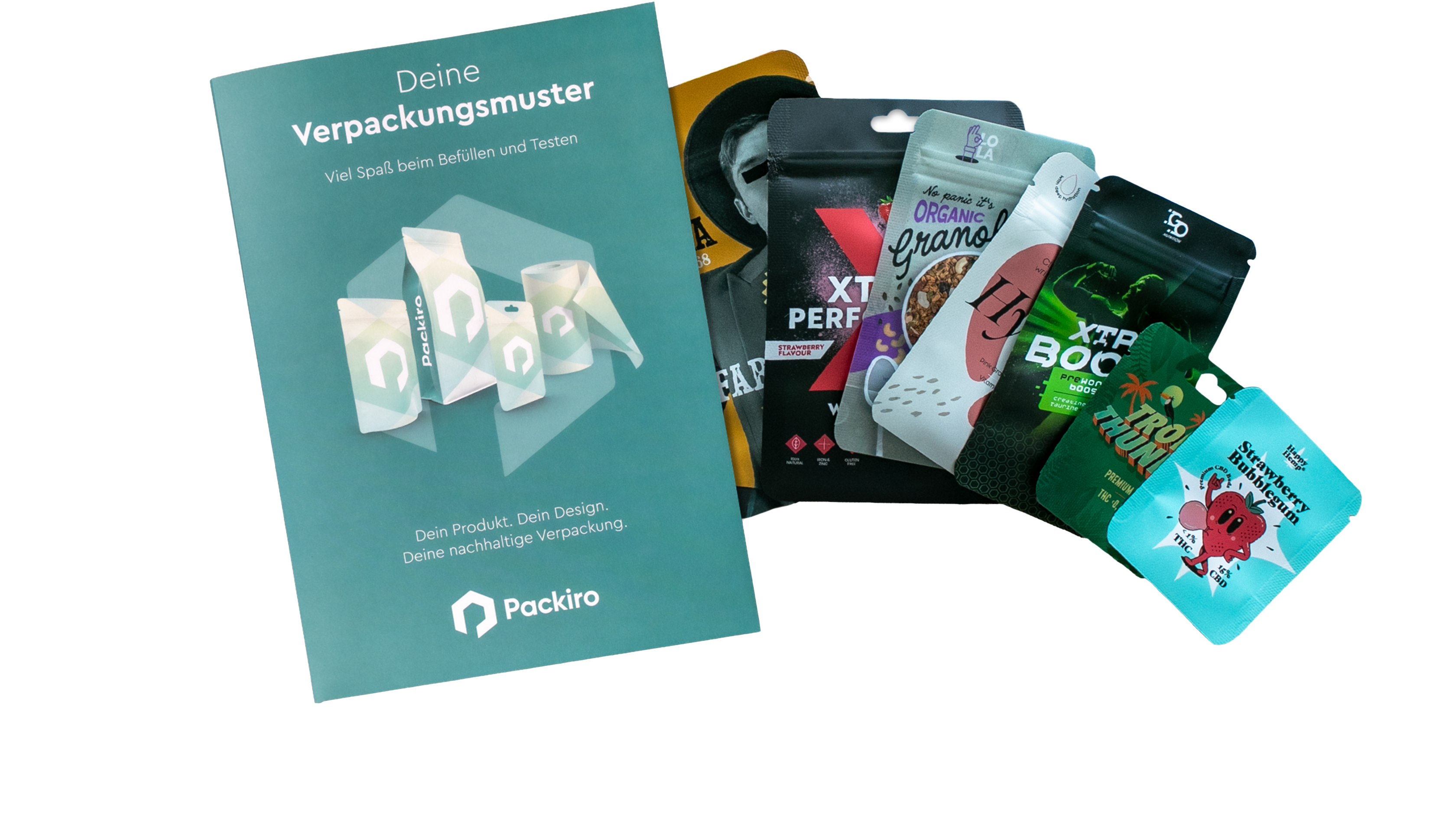
Feel the sustainability... for real!
Does your packaging not only have to be sustainable, but also beautiful? Take a look at your packaging samples, try out your product and see for yourself!
Why are we committed to sustainable packaging?
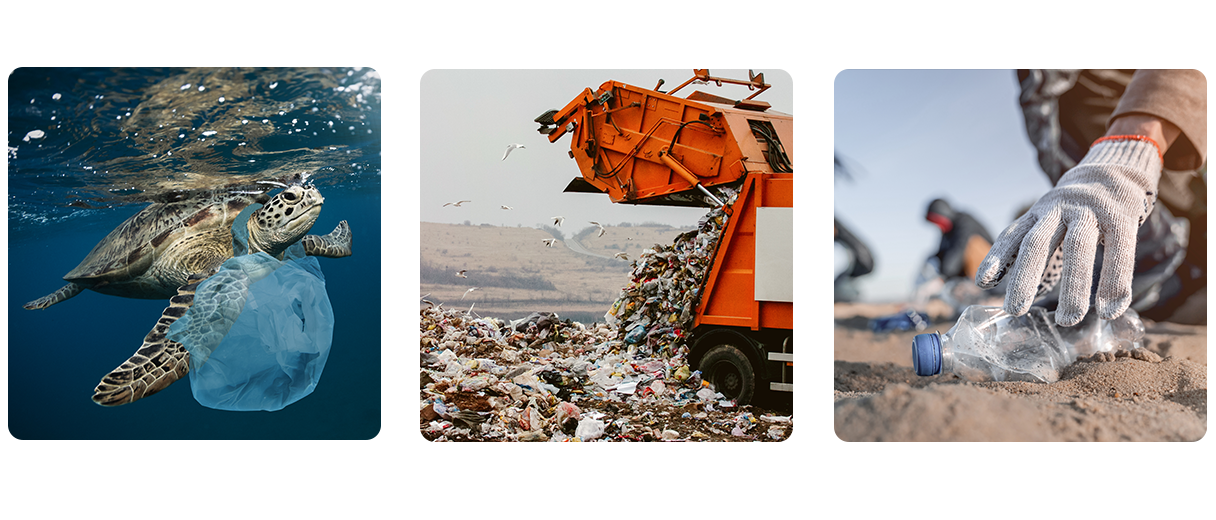
A straight answer to a straight question: Environmentally friendly packaging solutions are the key to conserving our resources and responsibly packaging products. As the demand for packaging continues to rise, so does the criticism of the global growth of packaging waste. However, completely eliminating packaging is not a universal solution and can lead to faster spoilage and increased waste, especially for sensitive food items.
We aim to address our global packaging problem through circular solutions and transparent education about materials in the long term. Our approach to packaging solutions follows the principles of a circular economy, where resources can be used multiple times. This requires good recyclability of our materials, as secondary raw materials can only be used to manufacture new products if they can be effectively recycled.
By producing locally in Europe, we try to reduce transport and the associated CO² emissions. Advantage for you: Higher delivery reliability due to less bureaucracy.
Packaging with a sustainability guarantee

Made for Recycling: Focus on circular economy
For the greatest possible contribution to a functioning circular economy, we have our plastic packaging "Martha" and "Toni" examined by the environmental experts at Interzero for their recyclability and confirmed with the recognized "Made for Recycling" seal. By the way: You can print the seal with just one click on your packaging - a significant added value for your sustainability communication!
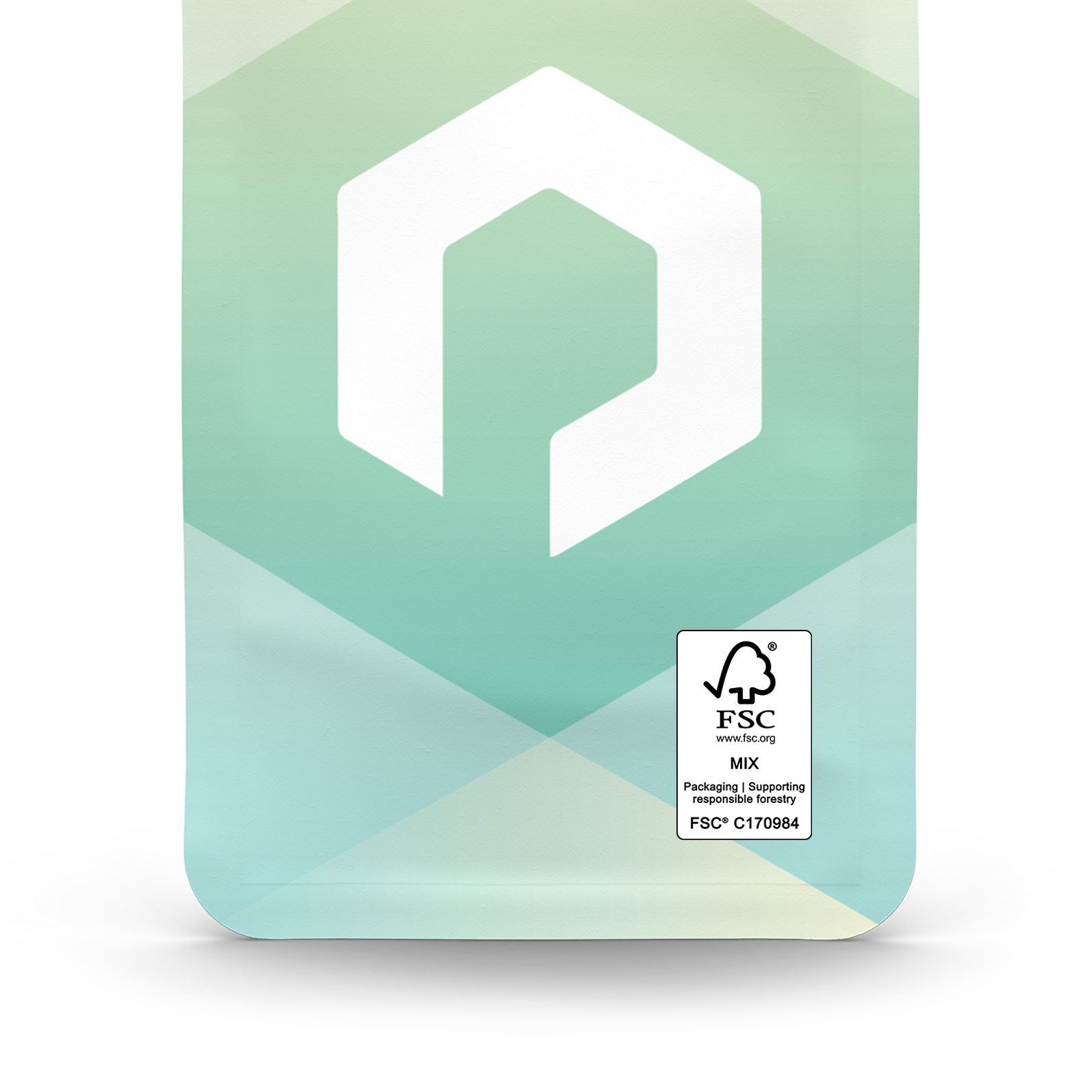
FSC®: Our Contribution to Forest Conservation
For the production of our paper-based packaging "Robin", we place special emphasis on the sustainability of the wood used. The paper for our packaging solutions is FSC®-certified and comes exclusively from regions that have been audited by the Forest Stewardship Council® (FSC®), an international non-profit organization, and meet the strict requirements of sustainable forestry.

OK biobased: Concentrated power from plants
Our packaging "Ben" is based on renewable (biobased) resources, thereby reducing the use of conventional petroleum-based plastics. This reduces our dependence on fossil fuels, leads to fewer additional CO2 emissions, and promotes the biological circular economy. The biobased content of the packaging is tested by the reputable TÜV Austria and certified with the "OK biobased" seal. With this seal, your customers will know how environmentally friendly and innovative your packaging is.
Here you can find answers to the most frequently asked questions.
Where are your packagings produced?
Our flexible packaging is exclusively produced in Europe. This allows us to save significant amounts of CO2 emissions on transportation
Is packaging made from biobased and biodegradable plastics sustainable?
Biobased packaging has the advantage of being made from renewable resources such as corn starch or sugarcane, which reduces additional CO2 emissions compared to conventional plastic packaging.
However, not all biobased packaging is automatically sustainable. For example, if they consist of multiple layers of different materials (e.g., plastic/paper composites), they may not be recyclable and will be sorted out and incinerated.
As for biodegradable and compostable plastics (often made from PLA), there is currently no recycling stream, so they must be disposed of in regular waste.
Is packaging from paper more sustainable than from plastic?
The belief that paper is always more sustainable than plastic is a myth. When assessing packaging, various factors must always be considered. The production of paper also consumes resources and is energy-intensive. Additionally, paper can only be effectively recycled when it is not tightly bonded with other material layers (e.g., aluminum). Unfortunately, this is often the case with milk cartons, for example.
Is eco-friendly packaging always recyclable?
Optimized packagings are, in the context of a circular economy, always recyclable. Because if materials are not recycled, the resources cannot be used for other products after their single use.
Can Packiro support me with my sustainability communication?
As your packaging partner, we not only consider it our responsibility to offer eco-friendly packaging but also to educate about myths and greenwashing in the packaging world, such as the topic of plastic-free packaging.
For this reason, we are more than happy to support you in credible and transparent sustainability communication. In addition to providing our Sustainability Guides, we are also open to conducting communication collaborations together to inform your customers about the sustainability of your packaging. Just let us know, and we'll be glad to assist!
How do you recognize eco-friendly packaging?
Renowned seals and certifications can provide you and your customers with a good indication of which packaging is sustainable. With just a glance, you can recognize whether a packaging, for example, comes from sustainable forestry (e.g., our materials Robin and Ben with FSC® certification) or is recyclable (e.g., our materials "Martha" and "Toni" with the Made for Recycling seal).







